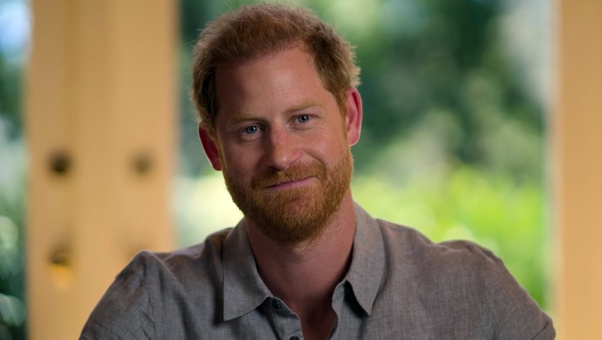A legal showdown is unfolding as Prince Harry‘s U.S. visa application papers take center stage in a courtroom drama.
These crucial documents have landed in the hands of a federal judge tasked with deciding whether they should be disclosed to the public.
The latest court filing has unveiled a surprising twist in the ongoing legal tussle surrounding the Duke of Sussex’s immigration status.
The Conservative Heritage Foundation has stepped into the fray, pushing for the release of the documents to probe allegations that Prince Harry may have misled authorities about his past drug use in his visa application.
This development adds a new layer of complexity to the case and raises questions about the implications of potentially unveiling Prince Harry’s visa application details.
Prince Harry, accompanied by his wife Meghan and their two children, has been calling Montecito, California, home since March 2020.
In his candid memoir titled “Spare,” Prince Harry openly confessed to using substances like cocaine, cannabis, and psychedelic mushrooms.
These revelations have cast doubt on the accuracy of his statements in his U.S. visa application.
While previous drug use does not automatically disqualify an individual from obtaining a visa, the Heritage Foundation’s move to seek further investigation through a Freedom of Information request underscores the importance of ensuring fair treatment for all applicants.
The Department of Homeland Security initially balked at releasing Prince Harry’s visa application, citing privacy concerns related to individuals’ immigration status.
However, Judge Carl Nichols found the DHS’s arguments lacking in detail and ordered them to provide more substantial justification for keeping the documents under wraps.
In response, the DHS submitted declarations for confidential review via an encrypted link, complying with the court’s directive.
Niall Gardner, a key figure behind the Heritage Foundation’s quest for transparency, emphasizes the principle of equal treatment under the law.
He raises valid concerns about potential special treatment afforded to Prince Harry due to his high-profile status and urges clarity and accountability in the visa application process to uphold fairness for all applicants.
During the court proceedings, the DHS’s legal team argued that Prince Harry’s memoir admissions should not be taken as absolute truth, suggesting that authors sometimes embellish stories for commercial gain.
In contrast, the Heritage Foundation introduced a transcript of Prince Harry’s interview on Good Morning America, where he hinted at pursuing U.S. citizenship, bolstering their case for document disclosure.
The road ahead remains uncertain as the DHS requested a two-week extension to meet the submission deadline, citing the need for additional time to sift through and evaluate the records.
This delay underscores the intricate nature of the case and hints at the involvement of other government entities in the document review process before they reach the judge’s desk.
The potential revelation of Prince Harry’s visa application papers carries significant weight, offering insights into his immigration journey, admission status, and any benefits sought.
This disclosure could reshape public perceptions of immigration system fairness and spark debates on preferential treatment for high-profile figures.
Amidst the legal wrangling over Prince Harry’s visa application papers, the quest for transparency and integrity within the immigration process takes center stage.
The ongoing scrutiny of these documents will shape the narrative surrounding Prince Harry’s immigration saga and prompt reflections on the treatment of prominent individuals within the system.
The verdict in this case is poised to influence public discourse and inform future policy discussions on immigration practices.
Related Stories

